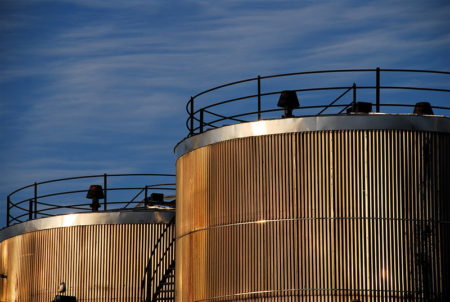April 8, 2020 – Tonight is the beginning of Passover, and so I wish all of my readers who follow that tradition “chag Pesach sameach” which translates to a “happy Passover holiday.”
For Jews, Passover marks a period of trial, tribulation, and salvation. It is a recounting of the freeing of the slaves that toiled for the pharaohs of Egypt, and the series of plagues and extreme events that beset the Egyptians before those slaves were given their freedom.
In our current pandemic state, where we are practicing social distancing, staying in our homes, and conforming to the restrictions our governments have requested, the story of Passover’s trials and the restrictions placed on a captive people bear relevance to our times. To all my readers I wish you to be safe and healthy as we weather the coming months together. And for those celebrating Easter and the beginning of Ramadan, a Happy Easter, and Ramadan Mubarak.
You would think that a pandemic that grounded transportation around the world when combined with the oil price war between Russia and Saudi Arabia, would destabilize the fossil fuel industry. It certainly appears to have in Alberta, the home of the oil sands, where a barrel of oil is priced at a steep discount. Producers can’t sell their oil and are stockpiling it wherever they can to keep production going. The same is true to some extent for the Bakken fields of the Dakotas and the Permian basin in Texas where oil demand has fallen as well.
The Impact of Falling Oil Prices
Russia and Saudi Arabia may end their squabble and the price of a barrel of oil may stabilize but it is likely to settle at a much lower price point than what we have seen in the past few decades. My guess is a barrel of oil will not exceed 30% of what it was when prices were at their peak in 2008 at $136 US per barrel. The current price quotes on the world market for different crude oil product varies from $28 to $52 US not including oil sands product which is deeply discounted at $20. And when you compare these prices to the high cost of production from fracked wells in the Bakken and Permian basins or oil sands, the industry is hanging on by a thread with each barrel of oil sold a money loser.
Wouldn’t you think, therefore, that the industry would put itself on hold?
Not by a long shot.
Searching for new oil fields is still happening. The Trump administration is continuing its assault on the environmental restrictions set by previous administrations for oil and gas exploration on US federal lands. And offshore drilling and exploration leases are being hawked by governments right around the globe. Drilling rigs can be seen in all the major oceans of the world including the Arctic where Russia, and the United States continue their exploration.
Then Came COVID-19
The fly that has entered the oil and gas industry ointment is the pandemic that goes by the name, COVID-19. It, more than low oil prices, has impacted exploration for new fossil fuel resources, and existing operations. In the last week alone, a number of COVID-19 positive cases have been reported from workers located on offshore platforms. In publicly disclosing these positive tests for the virus, every company in every press release has noted that production hasn’t been affected.
For example, on April 1st, the U.S. Coast Guard reported 14 offshore workers from five different platforms in the Gulf of Mexico as COVID-19 positive. All company press releases noted “production remains at normal levels.” Rig workers in the North Sea are COVID-19 positive. Even a BP site on Alaska’s North Slope has reported a COVID-19 positive worker although the company states it had implemented COVID-19 pre-screening.
The arrival of the virus seems to be doing what the crash in oil prices and restrictions on travel didn’t do. It is creating a partial pause for the offshore segment of the fossil fuel industry with one report stating that nine of 22 sites were at risk of being suspended for the rest of 2020. The oil majors from ExxonMobil to Chevron, BP, and Petrobras are citing the pandemic as reason for pulling back on new projects with new resumption dates put on hold.
A Final Note
Should environmentalists take heart that the fossil fuel industry has finally met its Waterloo?
No!
Since the COVID-19 pandemic caused governments to restrict business as usual operations, the environment has been a beneficiary. But it is only a temporary reprieve. A return to a near-state of normalcy will mean carbon emissions will climb again.
So is there a lesson to be learned?
Through a coordinated effort, the global community is coming together to fight the virus putting in place meaningful policies with teeth. With few exceptions we are all rowing in the same direction.
That has not been the case with carbon emissions and global warming. The Paris Climate Agreement set voluntary targets for all signing nations. They largely haven’t come close to meeting those targets.
When the pandemic first started we were asked to voluntarily isolate. But now governments around the world are prescriptive in imposing isolation and fining those who don’t follow the rules.
The question of when we collectively will act similarly for carbon emissions remains to be seen.
















